Over the past few years, I have talked with many people about the power of sharing one’s story and giving a voice to one’s experience—not easy things to do. Even if we want to share, it can be difficult to know how to express ourselves—or even what we want or need to say—especially when we are feeling at our most vulnerable. Most of the individuals we interviewed for You Look a Lot Like Me talked about the difficult, but often uplifting process of finding one’s voice again after being abused. For these women and men, “finding one’s voice” meant different things and took different forms, but in all cases, it was a turning point in their healing journeys. I have learned from my own life and through these conversations that one’s voice can be a precious gift. How we use that gift can change our lives—and the lives of others—in meaningful and positive ways.
I am so pleased to share Part One of our Three-Part Interview Series on “The Healing Power of Voice” with Shavonne Broom of StyleChurch. Shavonne is a passionate woman and micropreneur who cares deeply about helping women to embrace and share their unique voices through personal style and other creative forms of self-expression. I am inspired by her philosophy and I hope you will be, too.
— Chloé McFeters
CM: Okay, so let’s jump right in. When I say the word “voice,” give me three words that come to mind. Why those three words?
SB: Self-expression. Self-expression is the freedom to share who you are with the world, whether through words, speaking, or creative expression. Story. So much of creative expression is about telling a story, and though words may not be spoken, there’s still a voice behind the message. Style. Style is a form of self-expression and creates a space for individuals to share their personal story with the world through clothing.
CM: Have there been times in your life when you felt as if you weren’t in touch with your voice, or that your voice was devalued or invalid or not “good enough?” Or that it wasn’t safe for you—either physically, emotionally, or spiritually—to share your voice?
SB: I was bullied as a child and this feeling of not being good enough that is so often associated with being bullied translated into how and when I chose to use my voice. I went through periods of low self-esteem and choose not to use my voice to avoid being ridiculed.
I remember several instances. I remember the constant name-calling and unsolicited remarks about how I looked. Most of it was verbal bullying. I was quite the “boy’s girl” growing up, so I was picked on for being a tomboy and mostly for “not being like the other girls.”
Some of the bullying stemmed from my introversion and shyness. I am an observer of people and situations and often came across as “weird.” I was very withdrawn and didn’t engage much about my personal life, especially throughout my teenage years.
From 7th to 10th grade, I experienced various forms of emotional and verbal attacks. I remember being surrounded by a crowd of people in the hallway in school and not knowing or understanding why. I eventually discovered I was being attacked for a reason that was quite unclear to me. I knew I didn’t say the words I was accused of saying. I had no idea how I became the center of a brawl. Luckily, I was able to escape without any physical contact.
I was also faced with idle threats and scares. I recall one in particular. She was quite bold. She called my parents’ home several times and threatened to “beat me up” on the answering message.
Others played the Jekyll and Hyde scenario. They seemed to be my friend one minute and the next we were enemies. This was quite confusing for me; I felt like I was constantly fighting to fit in.
CM: I can definitely relate to that. It was only as an adult that I realized, looking back, that I was also a victim of bullying in junior high school. I didn’t recognize it as bullying at the time. That experience definitely had an impact on my voice.
How do you believe bullying or various forms of abuse affect a person’s ability or desire to express his or her self?
SB: Bullying has a massive impact on self-expression. I believe self-expression is having the confidence to embrace your individuality. When I was bullied, part of me wanted to hide, but part of me still continued to embrace style as a way to share my voice during times when I was afraid to use words. I will say that my style reflected how I felt during these times in my life.
CM: Do you believe that negative comments always have to be overt to affect someone’s voice, or in your opinion, can even subtle remarks or gestures impact one’s ability to be free or to live his or her truth?
SB: I believe subtle remarks or gestures can have as much impact as more overt comments, especially if these remarks come from those we love and care about the most. Unless we feel absolutely grounded in who we are as individuals, and create boundaries around who and what we allow into our space, then negative comments can surely create the feeling of insecurity and unworthiness and keep us from living our lives to the fullest extent.
CM: How did living in conflict with your voice play out in your own life? How did it hold you back? How did that dissonance within yourself hurt or limit you?
SB: The conflict played out most during various transitional phases of my life.
After I separated from the Air Force, I moved from the DC area to San Antonio. I was navigating my way through a new city and a new lifestyle and the “little me” showed up after about six months of working retail and attending school concurrently. I felt a bit lost, confused and frightened by the uncertainty, so I accepted a job working with the military again. I wanted to spread my wings, but I didn’t have the courage for this huge undertaking, so I basically conceded and went back to my comfort zone.
The second and most impactful transition happened when I resigned as an Air Force contracted employee and transitioned into entrepreneurship. I was inundated with so many resources on how to start a business, but I was still struggling internally with who I was and I how could serve others. I had faced many childhood struggles with acceptance and recognized that, as a result, I was still afraid to show my face and share my message for fear of being criticized, so I hid with my story and message in hand.
CM: What changed for you? What did you do? Who did you meet? What shifted in your life?
SB: I met someone who believed in me…and my message. Funny enough, we met on Facebook. We both attended Marie Forleo’s B School and somehow I found her in one of the subgroups. If I remember correctly, she posted a message about her book, The Spirit of S.T.Y.L.E, and her message immediately resonated with me. At about nine or ten at night, I send her a private message telling her how I felt connected to her message and brand. We conversed back and forth for a while and eventually met for the first time on Skype. Her name is Jennifer Gabiola. She’s a marketing and brand strategist for women in the beauty and fashion industry. She’s also a poet, a fellow introvert, and a conscious stylist.
I was so excited to meet someone who understood me. I struggled with fitting in my entire life and Jennifer appreciates me for who I am and is invested in the StyleChurch movement. I felt free around her, and although I still struggle with “little me,” Jennifer keeps me lifted.
This has been the year of ascension for Jennifer’s company, Dawning Soul. She hosted her first “Quiet Voice, Big Impact” retreat, re-launched her branding course, “Quiet Voice, Big Impact” for introverted leaders in beauty and fashion, and was invited to be a guest blogger for the Huffington Post.
Jennifer is a force. She is a get-sh*t-done kind of woman. I like to call her “the activator.” She has blessed me and supported me throughout the evolution of StyleChurch and I am grateful to call her a coach, sister, and friend.
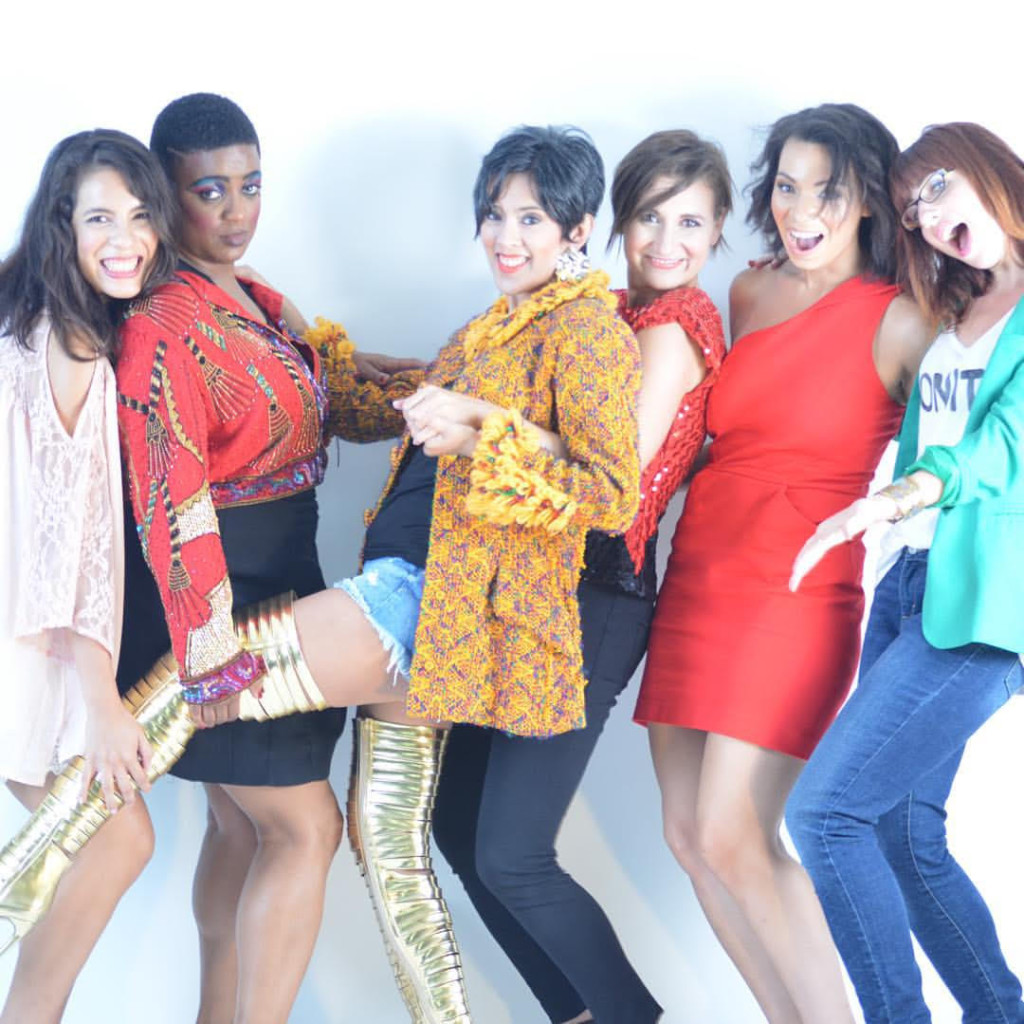
From Left: Brenda Canas, Simply Serene Wellness, Shavonne Broom, StyleChurch, Jennifer Dawn Gabiola, Dawning Soul, Jaleh Zandieh, Transformational Healing & Confidence Catalyst Creator of Hip Hop Meditation, Bianca Coleman, Last Weeks Looks, Shawna McGrath, Spiritual Business Consultant (Photo by Stephen Tyler, AKA “Dez the Great,” House of Greenwood Photography)
CM: I first met Jennifer in 2011 through the Kickstarter campaign for You Look a Lot Like Me and have continued to be inspired by her ever since. It seems like something you share in common with Jennifer is the desire to reach people on a deep and genuine level, and to help them realize their inherent beauty and worth, which as we all know (but might have trouble believing), has nothing to do with anything external. How important do you think it is to have women supporting other women in this way?
SB: Supporting other women is a necessity in my business and personal life. Everything I do is centered around encouraging and supporting others in their highest good.
I believe we thrive in community and that ultimate success happens when co-creation, collaboration and support follow.
Chloé, I love that you created a platform for people like me to share their voice. We met because our stories connect, and because we support each other, this allows for greater space to broaden the community of connections around us. The common thread becomes much more visible when we support each other and wow, what a force that creates.
CM: Do you think that a particular type of damage is done when it’s another woman who hurts us? Does a verbal or emotional or spiritual wound inflicted by another woman shut down or silence our voice in a different way?
SB: Absolutely! I’ll go back to the common thread analogy. As women, we share more of the same experiences than not. In the midst of a verbal or emotional shut-down, we can be left feeling disconnected from the “tribe” or support system that we often lean on for emotional support. We must get back on our feet, plug in, and connect to the women that get us, love us and want to see us win! This is how true sisterhood is formed.
CM: What’s the difference between your speaking voice and your inner voice? Which one is more important? How does one interact with and inform the other?
SB: Inner voice is spoken through our spirit and the medium we use to express our inner wisdom. Both are important in the expression of voice. The inner voice acts as our roadmap and guides our speaking voice in communicating what our inner voice (wisdom) directs us to say in the moment. I’m learning the power of “pause” and the importance of discernment between the two. I always hear the mind first, even when the inner voice is present. The pause allows space for the inner voice to be heard.
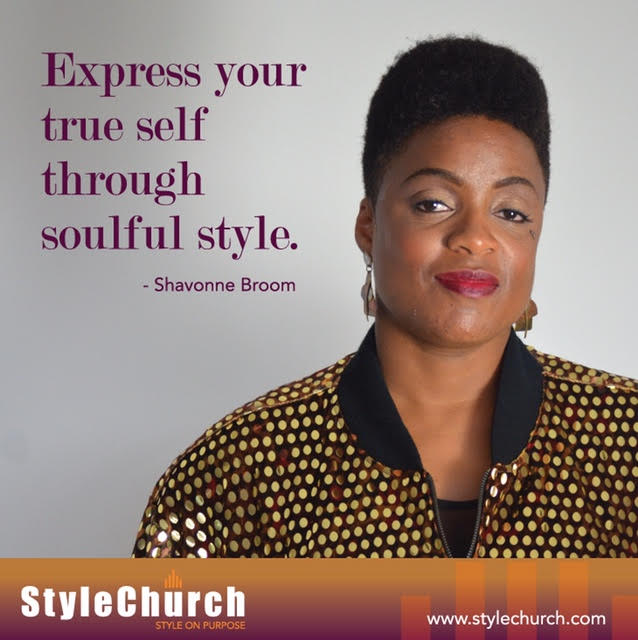
CM: For you, does someone sharing his/her “voice” necessarily involve speaking out or becoming an advocate for a position or cause, etc., or can it be something that takes place almost entirely internally?
SB: I love this question because I believe sharing voice comes in so many different forms. Creative expression is sharing voice, speaking words is sharing voice, writing, performing arts, and production are all forms of sharing voice. I believe sharing our voice is the reason we live. Sharing voice is what connects one person to the next. This is how sisterhood and other communities are formed. And exactly how you and I connected.
CM: If we think about voice being something other than the act or style of expressing something in words, how does that free us? What are some other ways we might express our unique voices, especially when we are being quiet or even silent?
SB: I believe the form in which voice is shared is unique to the individual. I see writing, dance, poetry, singing, creating, and supporting a cause as some of the various ways to share voice. I believe sharing voice is about sharing who we are. We do this by connecting to what resonates with us and fills our heart space the most.
In moments of silence, listening to our favorite song can help connect to voice and express the words that may be difficult to say in the moment.
Various forms of movement can help us express our voice, too. I love to dance. Dance helps me express my voice in ways that are much more difficult to speak in words.
CM: I know that your company, StyleChurch, is about helping women to discover and embrace their personal style, but more than that, it seems to be about creating a space to share one’s voice through a loving, self-accepting embrace. Can you talk about that and what inspired this specific mission? Was it laser-sharp to begin with or did it evolve over time?
SB: StyleChurch evolved over time. I love creative expression and the story it tells. Initially I was focused on being a personal stylist, but I felt a part of my story was missing. What started off as a full service personal style business transitioned into a movement and being an encourager for women to embrace their individuality and share voice through personal style.
I offer personal styling, however, my main focus has shifted to speaking about self-acceptance and overcoming fears of being seen. StyleChurch is centered around collaboration. I love working with other organizations and micro entrepreneurs to support and encourage women to own their power, share their voice, and stand out in the world with purpose and style.
CM: Personal style is obviously something that matters a great deal to you and has changed your life for the better. Do you believe one’s personal style has the capacity to tell one’s story?
SB: I believe personal style is storytelling and personal stories cannot be duplicated or reproduced. A style story is unique to the individual and their life experience and a conscious choice to share our voice with the world. It gives us the freedom to stand out in the crowd and say, “I am here.”
Growing up, I was surrounded by very stylish men and women in my family. I learned most about style from my mother and (maternal) grandmother. I’d tag along on shopping trips to Macy’s and watch them navigate various departments. They were always current with fashion trends, but they also knew how to inject just enough flair into their wardrobe to make it their own. Through watching my parents, I picked up my own sense of style. Not always in good taste, but my style was always indicative of certain phases in my life. I dressed like a tomboy throughout middle school and high school. Baggy pants and shirts filled my wardrobe. I felt comfortable in big, baggy clothes, but I was also the perfect target for bullying. I was not your “typical girl,” and as much as I wanted to just be a tomboy, I stood out from other girls in middle school and high school and the mean ones took notice. I was picked on for looking “like a boy.” Some even questioned my sexuality. The experience was hurtful, but self-expression was my safe space. I have not always been the most “stylish” person, but my style always told the most current story about me.
CM: Do you believe our voices change as our stories change, or are we always essentially the same at our core, and that what changes is how we use—or get better or worse at using—our voice?
SB: As with our style, our inner wisdom evolves as we do. The essence of who we are remains the same, but through experience we are afforded the opportunity to refine our voice.
CM: How can someone use personal style to heal? To go from the voice unspoken to the voice expressed with confidence and joy?
SB: Personal style is a form of self-expression and communicates who we are. When we choose to express ourselves, we are also saying that we accept ourselves, our journeys, and all the stories within them. The healing power is in the awareness of self and the ability to translate that into your unique personal style.
CM: How do you think a person knows when they’ve climbed that mountain of self-acceptance? There’s no one there to hand you a flag that you can stick in the ground on the summit, so how do you believe one knows when they have healed, or when one has actually come to love his or herself and embrace his or her inner voice?
SB: I believe self-acceptance is a journey, and the journey is what gives us the teachers, lessons and experience to help us get clear on who we are and how we are meant to serve and support in this world.
The moment we see our journey to self-acceptance as a gift and a launching pad to share, support, and serve others, our minds shift away from lack and we learn to fully embrace who we are as individuals.
CM: How important is it for someone to actively search for his or her voice? What are some exercises that you would suggest people use to get in touch with voice inside them?
SB: Clearing the clutter in our lives can help us become much better listeners. When we clear the clutter we allow space for our inner voice and wisdom to show up.
We can start by clearing our immediate environment: donate clothes that no longer fit or align with who you are now, organize your living space, and make room for your tribe—the people who love and support you and your mission.
CM: One of your taglines for StyleChurch is “The doors to self-acceptance are always open to you.” Do you still struggle with self-acceptance? Do you view self-acceptance as a journey or a destination? How can we teach others to become more accepting of themselves and more compassionate toward themselves?
SB: The triggers from my childhood continue to show face, but through my own journey, I have developed a better sense of self and have learned more positive ways to get through the blocks that surround self-acceptance.
I view self-acceptance as a journey. The experiences in our lives offer us the opportunity for growth and expansion.
We can teach other people to be more accepting of themselves and more compassionate by staying close to things and people that bring happiness and joy in their lives.
Here are some internal and external actions we can take in our lives to fill our self-acceptance cup:
- Carve out non-negotiable time to connect with yourself. Dance, read, write or enjoy your favorite beverage and watch the sunrise. Open the space for clarity to seep through. Begin with gratitude.
- Be intentional about each day. Start off by vocalizing how you want to feel. Get dressed! Wear clothes that align with how you want to feel.
- Support others in the community. This is an excellent way to uplift our spirits and give us a sense of purpose and fulfillment in our lives.
- Form a personal and informal group of advisors who are invested in you. This could include mentors, accountability partners and spiritual teachers. Check in with them regularly and be honest.
- Set a nightly routine: Reflect on the day. Consider what you enjoyed most and how it made you feel. What did you do that you are proud of? Keep doing more of it!
CM: October is National Domestic Violence Awareness Month and many people who are reading this interview may feel as though their voices have been silenced due to the abuse they are experiencing or have experienced. Sometimes they remain silent because the risk of speaking out may put their lives in danger, or because they are embarrassed or ashamed or feel as though no one will understand or believe what they are going through. What would you want to say to those individuals?
SB: Choosing not to speak out for fear of putting your life in harm’s way is a respectable choice to make and one I support. In those specific instances, perhaps the individual could share their voice through other mediums of expression (e.g. dance, writing, drawing).
When we share our voice we not only tell our story, but we also become a voice for countless others who have similar experiences, promote awareness, and educate the public about a cause that may otherwise go unnoticed.
CM: When we look at domestic violence, we recognize that so many incidences go unreported, so many people suffer in silence. And this silence exists not only in relationship violence, but in other forms of violence against women, including sexual exploitation, trafficking, and sexual violence. As a woman, what would you suggest we do to better hear, listen to, and respond to these unspoken voices?
SB: We can be advocates for justice in our own communities by being vigilant, taking notice, and reporting these actions to the proper agencies without placing ourselves in harm’s way. We can also be a voice by supporting the agencies that advocate for victims of these violent acts.
CM: When we think about Domestic Violence and Violence Against Women, we know that countless voices around the world have been silenced forever through the senseless and tragic act of murder. What might we do to honor the voices of these victims?
SB: We can bring awareness through various platforms for the men and women who have been impacted to speak out about and educate the public on the impact these tragic acts have in our communities and around the world.
CM: Do you see any value in domestic violence shelters having people like yourself come to speak to the residents who are working to get their lives back on track? How do you believe that companies like StyleChurch can help to empower women and give them tools to express themselves before they might be ready to express their emotions or stories in words? How might it also help them prepare for going out into the world, finding a job, etc.?
SB: The primary value for me is to create a space for these women to know they are seen, safe and supported.
StyleChurch represents embracing individuality and sharing voice through personal style.
I’d focus on giving these powerful women the opportunity to fully be themselves by creating the space for them to feel free.
The best preparation you can have in any transitional phase is self-awareness.
Self-awareness:
— helps us determine and discern what will be a good fit in our life going forward.
— helps us communicate our value, strengths and needs with clarity.
— gives us a sense of confidence knowing we belong and we matter.
CM: October is also National Bullying Prevention Month. We know that violence takes many interconnected forms, including bullying and intimate partner violence, and that the root causes of violence are often overlapping. So much of what you have said about your experiences with bullying could be said about a woman or man who is being abused by an intimate partner—the name-calling, the threats of physical violence, the intimidation, the confusion, the Jekyll and Hyde switch. Given your own experiences with being bullied as an adolescent and teenager, what would you say to a young person who may be in a similar situation? What would you say to an adult who is being bullied?
SB: You do not deserve this and you are not what they say you are. You are beautiful. You are enough. You are deserving. You are worthy. And you have a voice.
Your voice has the power to drive change. Start by telling someone. Be the beam of light that shuts out the darkness of bullying. When you choose to use your voice, you break the cycle of silence and raise awareness to those around you that this is a significant problem.
Ask a friend, teacher, or coach to guide you through getting the support you need to feel safe at school and/or in the workplace.
I also ask that co-workers, friends and colleagues support their peers by creating safe zones in their immediate environment where all parties advocate for zero tolerance.
CM: In your opinion, when does someone’s authentic voice speak louder and more profoundly than with words? Can you share a time in your life when someone sharing their authentic voice with you impacted your own voice or life in a positive way?
SB: The authentic voice speaks loudest in the space of service. I strongly believe the abundance we receive in our lives has a direct correlation with the people we serve and support along the way. We are created to serve and I think our sole purpose is to determine how we are to do so. I have experienced countless times when someone sharing their authentic voice impacted my own life. The most recent time was during the first annual “Quiet Voice, Big Impact” Retreat.
Jennifer Gabiola created the space for each of us to express our authentic voice. Meaning, we all had the opportunity to share our mission and to use our authentic voice to support and uplift each other throughout the entire retreat. Because I was offered this space, I could share the voice of creative expression by assisting with styling the ladies for the #Next Level photo shoot at the end of the retreat.
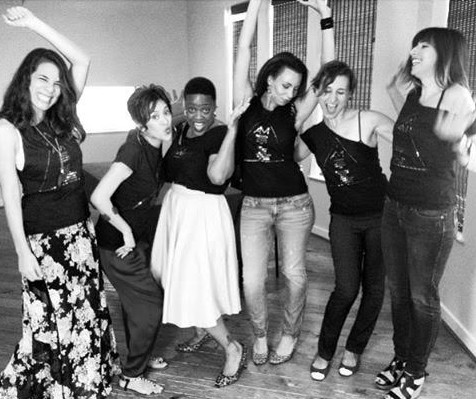
From Left: Brenda Canas, Simply Serene Wellness, Jennifer Dawn Gabiola, Dawning Soul, Shavonne Broom, StyleChurch, Bianca Coleman, Last Weeks Looks, Jaleh Zandieh, Transformational Healing & Confidence Catalyst Creator of Hip Hop Meditation, Shawna McGrath, Spiritual Business Consultant (Photo by Nick Jones, Mr. Instrumentalist Music)
CM: Can you please tell us a little bit about the services StyleChurch offers?
SB: The StyleChurch mission is to give people a voice to fully express themselves from the inside out. This means supporting women in developing a powerful presence and taking bold, courageous action in life.
Some of the services I offer:
Speaker: I enjoy speaking on self-acceptance and supporting women in overcoming fears of being seen during transitional phases in their life (as they move from one phase to the next). I love speaking at women’s retreats, live events and conferences.
Personal Styling Services: I offer high-touch, high-value, high-impact services where transformational results are apparent from beginning to end. These sessions are focused on supporting women in embracing their whole, individual selves and encouraging them to show up and be seen in the world.
CM: Where can people find you and your company?
SB: StyleChurch is available online at www.stylechurch.com. I am also active on Facebook at facebook.com/stylechurch.
CM: My company, Tortoise and Finch Productions, is about to announce a nonfiction writing contest on the topic of “courage.” We are thrilled that you are donating one of the prizes for the contest. What will you be donating and why is this particular donation special to you?
SB: I am donating my “Love, Me Manifesto,” which was created to support women in owning their way to self-expression. Self-expression is the center of what the StyleChurch movement is about. I think self-expression starts with understanding who we are at our core and this manifesto serves as a guide to support the journey of self-acceptance and creative expression.
CM: Is there anything else you would like to share?
SB: Chloe, thank you for the invitation. It’s been a great pleasure and honor to share my voice on the Tortoise and Finch platform. I hope this interview shines a beam of light on Domestic Violence Awareness and Bullying Prevention and encourages others to be a voice.
CM: You are so welcome, Shavonne! Thanks for sharing. You are a true inspiration and we can’t wait to have you back for part two in November!
—
To learn more about Shavonne and StyleChurch, please connect with her at www.stylechurch.com. Shavonne will be back for part two of our three-part series on “voice” in November. Please stay tuned.
What are your thoughts on the importance of discovering and sharing your “voice?” Please share in the comments below.
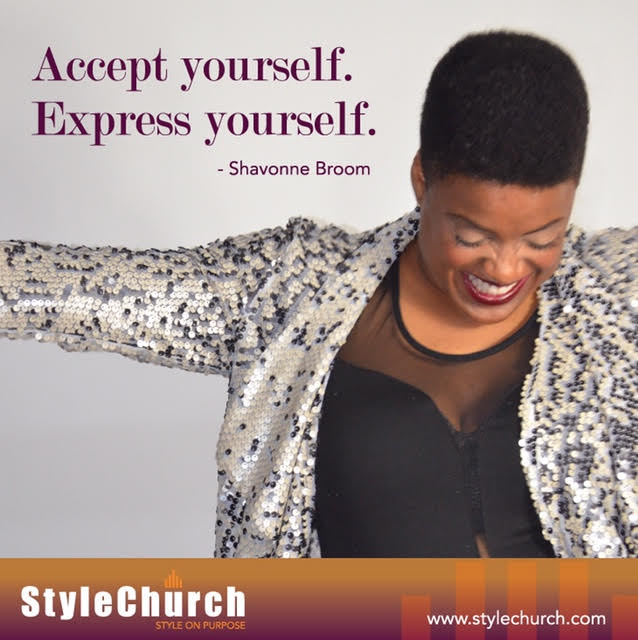
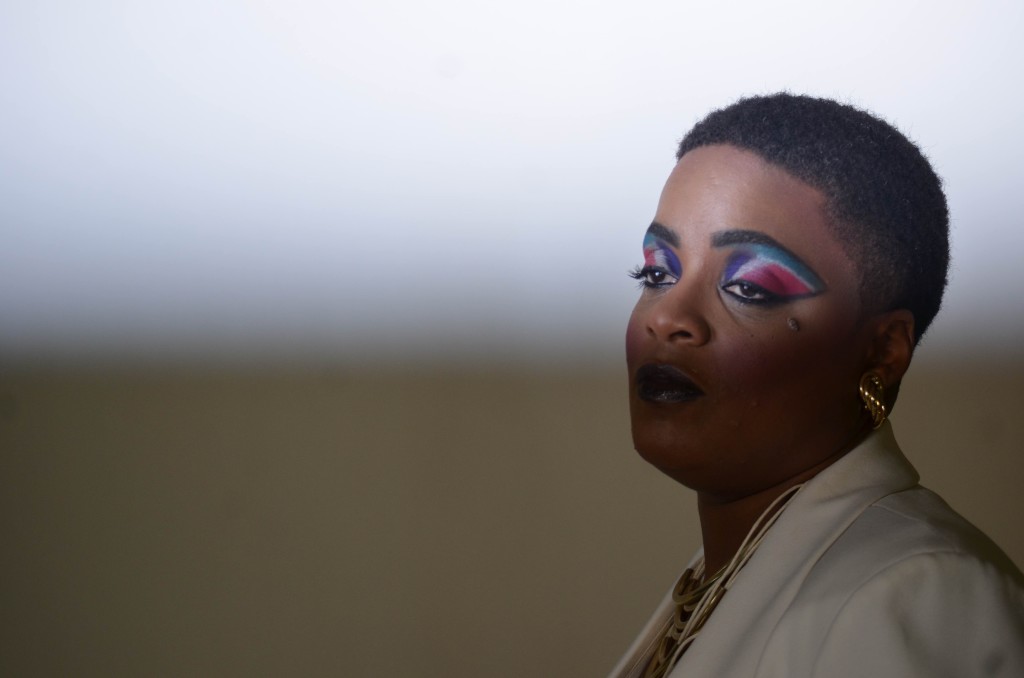


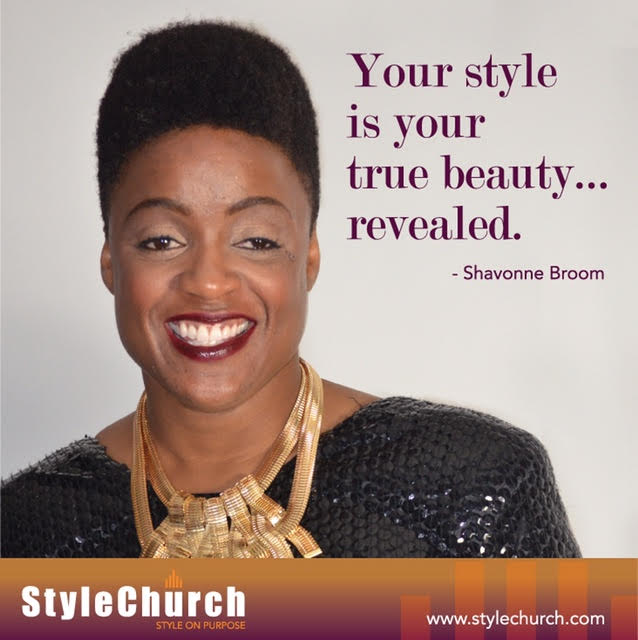
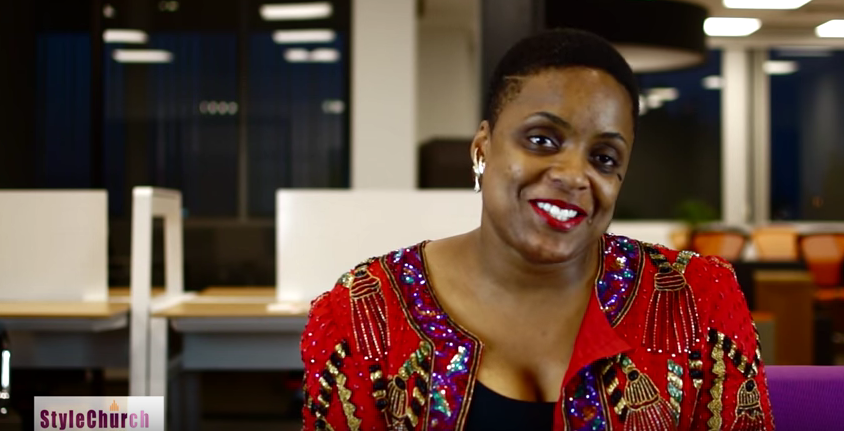
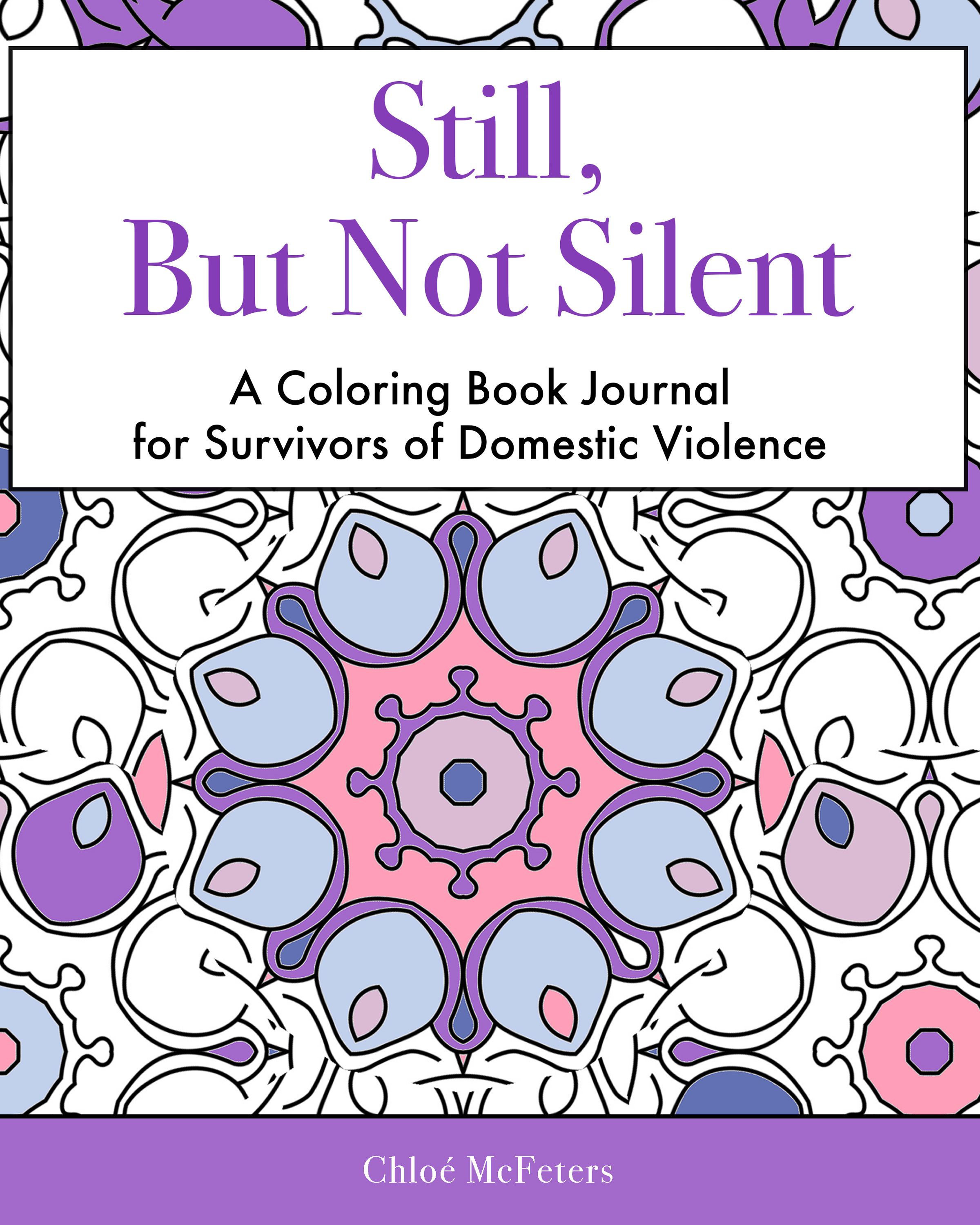
Shavonne I love you. .. I’m so proud that you shared your story for others that may be dealing with the same difficulties in their current or past life. After reading your interview, I realized my life experience had come full circle…. I too suffered through Bulling in junior high school …I was followed home and harassed by several male students on a daily basis. As a mother , I’ve always tried to be supportive and protective of you. But, I realized I can’t protect you from all life kessons